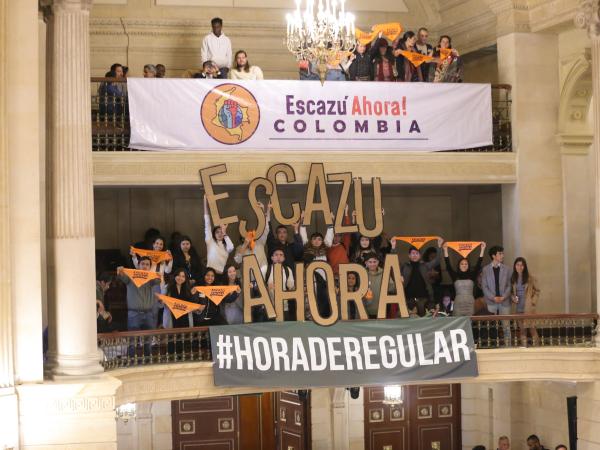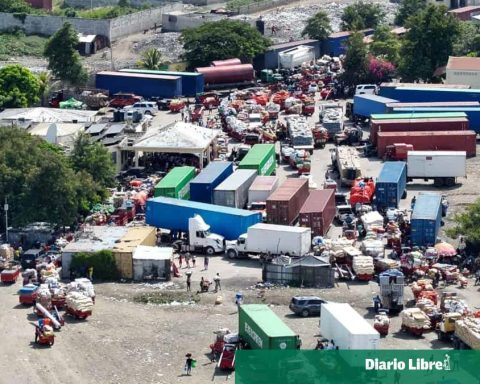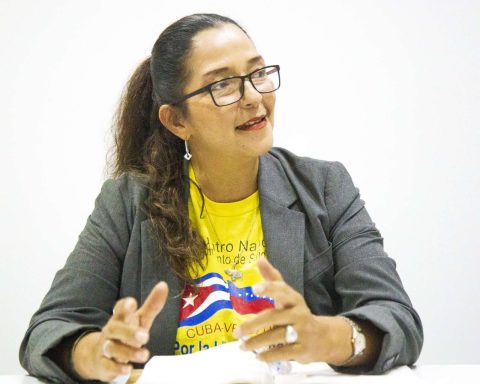In the last days, In Colombia, the approval of the Escazú Agreement has been celebrated, regional treaty on the rights of access to information, public participation and access to justice in environmental matters for the Latin American and Caribbean region.
(See: Government – ranchers agreement: land purchase will not be made with TES).
Within the framework of the second debate of the House of Representatives, the Agreement was ratified on October 10 with a total of 120 votes in favor and it is expected to go to conciliation in the Congress of the Republic for its subsequent presidential sanction to establish itself as a Republic Law.
This was confirmed the Ministry of Environment and Sustainable Development, led by Minister Susana Muhammad, who stated, “this is a triumph of youth and we hope to honor it with an implementation plan so that we can have more citizen participation in environmental decisions, more intervention and defend those who defend the environment”.
(See: Government anti-inflation measures: what will depend on whether they work?).
In turn, Minister Susana Muhammad, faced with doubts about the country’s sovereignty upon becoming part of the Agreement, in an interview with W, stated that “the Escazú Agreement does not affect the sovereignty of Colombia, what it does is improve access to public information and will improve the country’s investment with clear information and conditions”.
The implementation of the Agreement according to the head of the environment portfolio, “once sanctioned by the head of state”, will be carried out in five short-term actions such as the environmental information management policy, the accompaniment strategy for environmental defenders, to broaden citizen participation in decision-making, support for the creation and strengthening of citizen oversight offices and, lastly, the information system on socio-environmental conflicts.
In consultation with experts by Portafolio, the professor of the Catholic University of Colombia Hernán Felipe Trujillo stated that the Escazú Agreement corrects the information asymmetries of interest groups that affect socio-environmental values, which has led the Colombian State and companies to bear the costs of lawsuits due to the impact of socio-environmental events that, according to the teacher, could have been avoided with access to information and the effective participation of the communities.
(See: No visa to USA? They will propose to eliminate the requirement for Colombians).
“It is a great opportunity for the economic sectors that develop high-impact projects so that they can be certain of their actions and improve their relationship with the communities, increasing their value in terms of sustainability, which improves the value of companies listed on the stock market.Trujillo said.
At the same time, he assured that with this agreement the reduction in conflict resolution times is expected, which would improve legal certainty through contract costs, which works as “one of the determinants of foreign direct investment”.
From another point of view, in recent days Francisco Lloreda, president of the Colombian Petroleum Association (ACP), told Portafolio that Colombia has institutions and regulations for robust participation in environmental matters.
“For this reason, it does not need the Escazú Agreement and, on the contrary, it leads to serious risks such as the paralysis of public and private strategic projects by handing over solutions to differences between States to multilateral organizations,” said Lloreda.
For Alejandro Useche, professor of economics at the Universidad del Rosario, giving access to information will make it possible to contribute to the better management of resources and, in turn, to generate measures within public policy and private strategy to contribute to the care and the improvement of environmental aspects.
(See: The taxes that the tributary brings: Minhacienda explains the project).
“The participation of communities and the care of environmental leaders would imply economic aspects, a contribution that attracts sustainable investments, those related to caring for the environment, more employment could be generated and it would open the door to everything that is happening in Colombia, a big goal, which is the search for peace”, said the teacher.
Finally, President Petro on his Twitter account celebrated the ratification where Colombia would become the 14th country to sign of the 24 in the region. “The Escazú international treaty has been approved as law, which seeks to protect the environment and environmentalists. Congratulations to Congress and to Colombian society,” said the president.
Congress discussing the Escazú Agreement.
The Agreement and the country’s mining sector
For the mining sector, the lawyer from the firm M&M (Mining and Environment, Law Firm), Marcela Bayona stated that both for mining and the extractive industry in terms of demands and more transparency is not something very big.
However, the lawyer insists that, “The implementation of the Escazú Agreement, as well as representing good intentions, can also bring problems in terms of investment if it is not clear what the autonomy of Colombia as a nation will be like in making its decisions, which would generate legal uncertainty”.
Likewise, it assures that Escazú has a door in the decisions that are made within the Colombian state. against possible court challenges international, this being the point that most generates discord and insecurity.
DIANA K. RODRIGUEZ T.
Journalist Portfolio


















